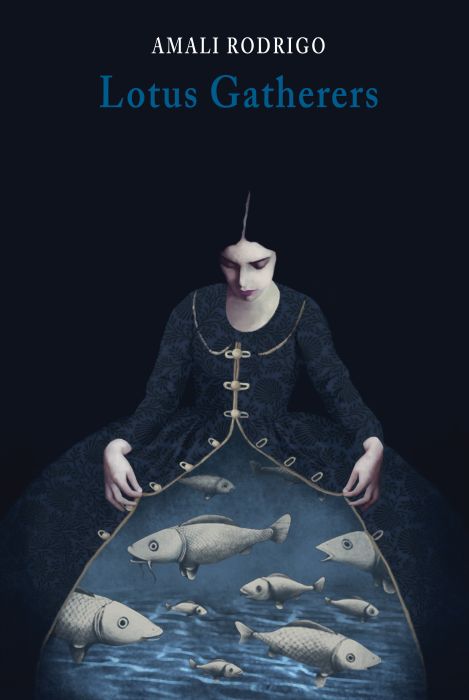Lotus Gatherers
Amali Rodrigo's first collection is marked by a sense of being on a threshold between worlds. In South and East Asian religious symbolism, the lotus flower embodies the promise of purity and transcendence because it rises clear out of the muddy mire of its origins. It represents both abstract realms and the concrete phenomenal world. The lotus root is also an aphrodisiac.
Whether the occasion of these poems are relationships, customs and superstition, war and its aftermath, the fabular or simply a piece of driftwood, they question scale, geographical and emotional distances, and our habitual gaze.
At the heart of the collection are her multi-voiced Aftersongs exploring the nature of the male gaze, religious didacticism and artistic inspiration. This epigrammatic sequence is based on the ekphrastic graffiti-poems inscribed between the 8th and 10th centuries at a royal pleasure palace and fortress in Sri Lanka, addressing the frescoes of the beautiful 'cloud maidens'.
'What makes Rodrigo a truly remarkable poet? In part, it's the breadth and intelligence of her vision (and broad and intelligent it certainly is, taking us to Japan, Kenya, the North Pole; from Kintsugi and Ikebana to whirling dervishes and meteor showers); in part, the deftness with which she can work that vision into a world we can marvel at, but also recognise. This is a world of paradoxes - exotic and familiar, a deeply spiritual world which delights in passion; that celebrates love, but does not hesitate to focus on unsettling histories of gender violence. Lotus Gatherers is an astonishingly sensual book, in the literal sense – these are poems we can feel; poems we can hear resonating on the page, aromatic poems, laced with breathtaking imagery; poems we can hold up to our lips and taste.' – John Glenday


